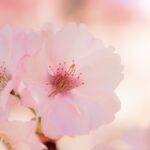Uba Zakura (姥桜) Part 1
Uba Zakura
姥桜 Part 1
姥桜 (uba zakura) is a popular name for cherry trees in which flowers bloom earlier than leaves appear.
「姥桜」は、葉が出るよりも先に花が咲く桜の通称です。
姥 (uba) means “old lady” and 桜 (sakura/zakura) means “cherry.”
「姥」は “old lady,” 「桜」は “cherry” を意味します。
In Japanese, both “tooth” and “leaf” have the same reading — “tooth” is 歯 (ha) and “leaf” is 葉 (ha).
日本語では、”teeth” を意味する「歯」と、”leaf” を意味する「葉」は、同じ読みです。
That is to say, 姥桜/葉がない桜 (ha ga nai sakura – a cherry tree with no leaves) is a metaphor for 歯がない姥 (ha ga nai uba – an old lady with no teeth).
歯がない姥と、葉がない桜をかけて、姥桜という言葉が生まれたというわけです。
Also, “uba zakura” can be used for describing an appearance of a woman.
また、姥桜は女性の容姿を形容する言葉でもあります。
Imagine what it describes.
(To be continued.)
(To be continued.)
どんな意味か、想像してみてください。
(明日に続く)
(明日に続く)




